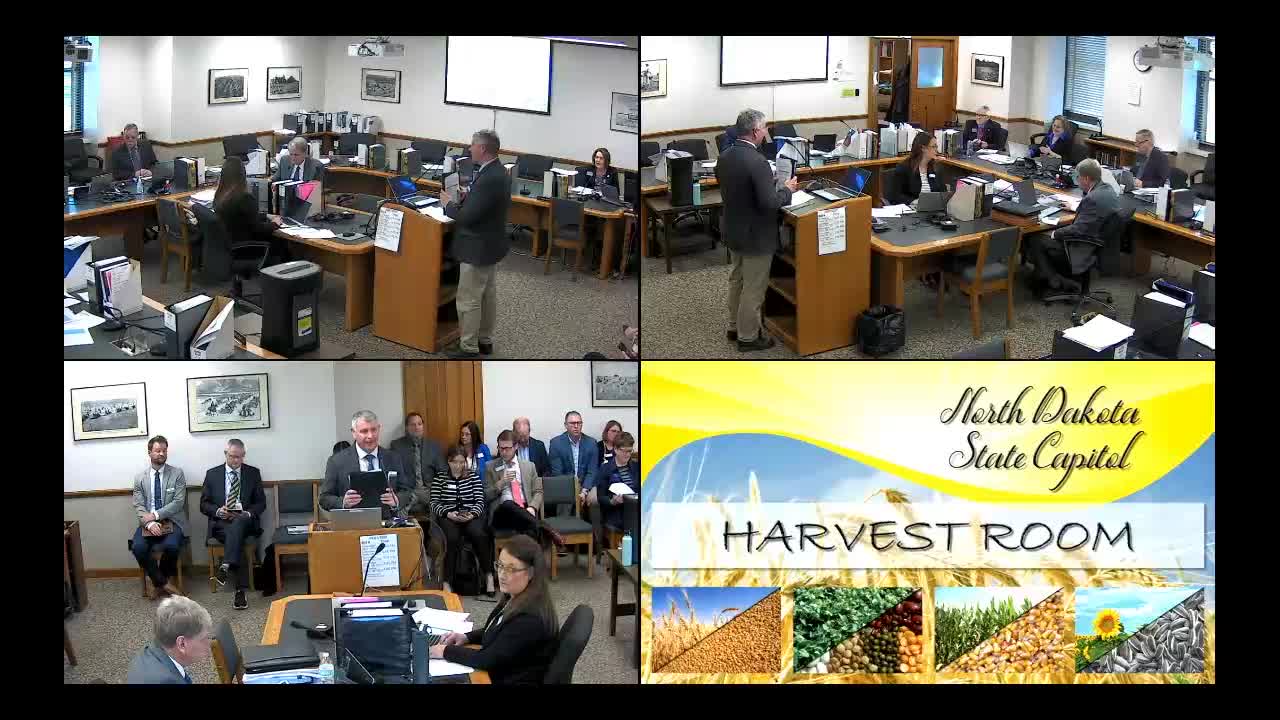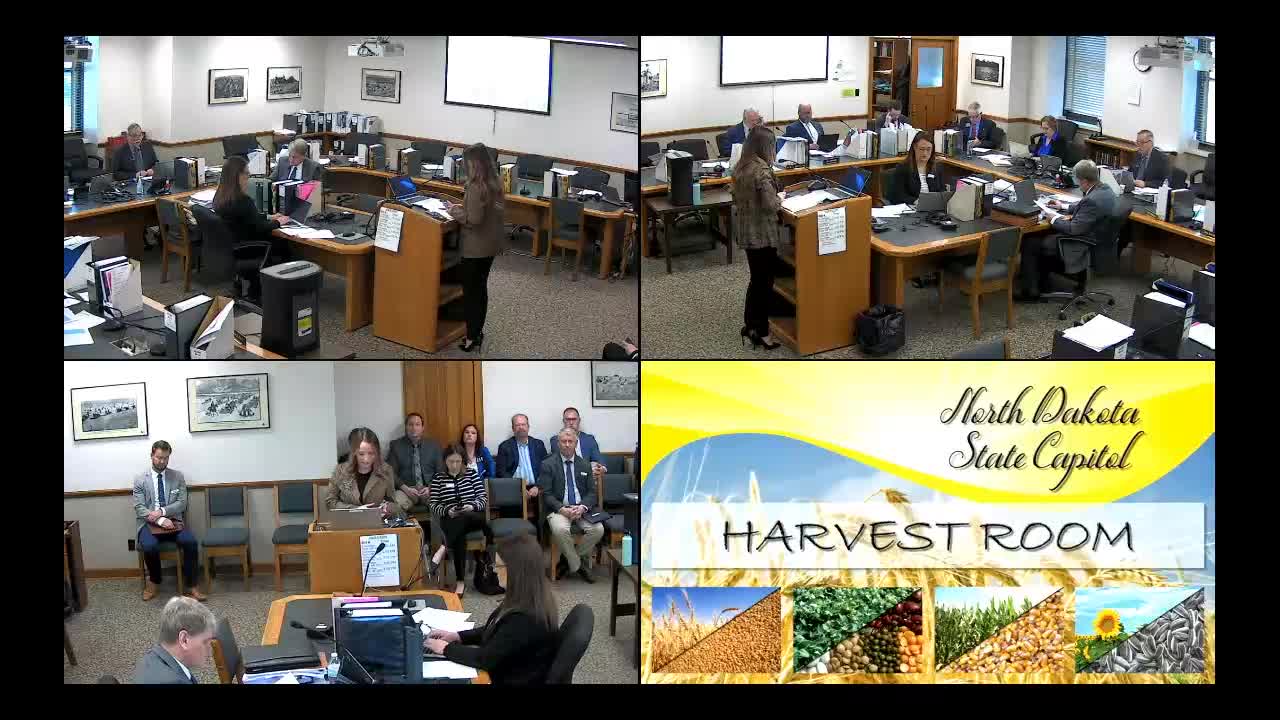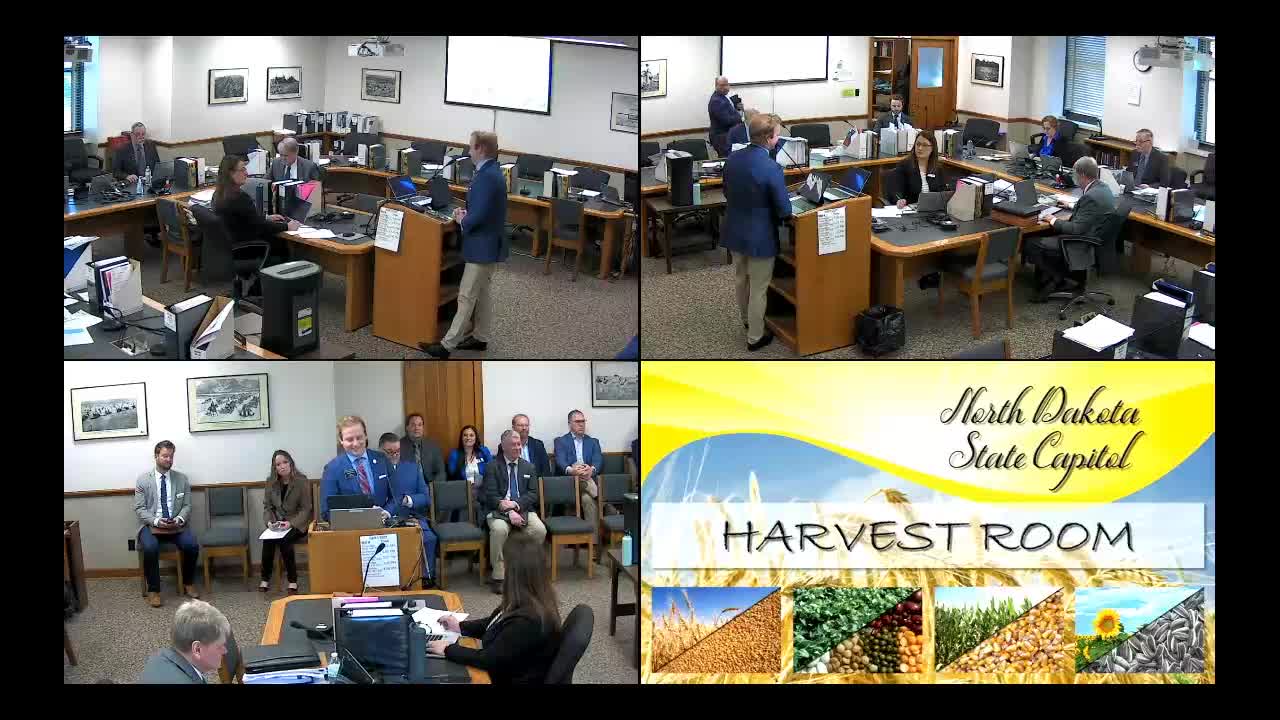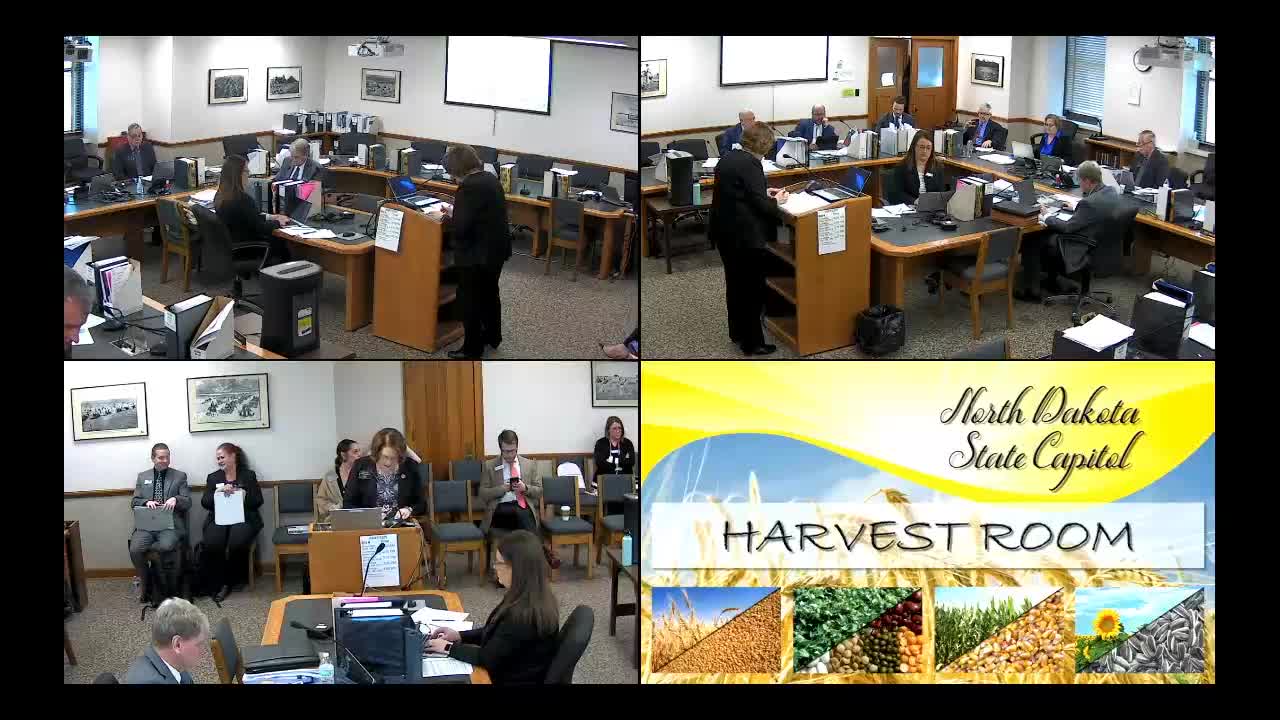Article not found
This article is no longer available. But don't worry—we've gathered other articles that discuss the same topic.

DEQ and Public Finance Authority explain proposed wastewater grants; $25 million would reach about eight priority projects

Senators review $100 million revolving loan proposal to help long-term care facilities finance construction

Senators hear proposal to create North Dakota Center for Aerospace Medicine with $500,000 one-time appropriation

